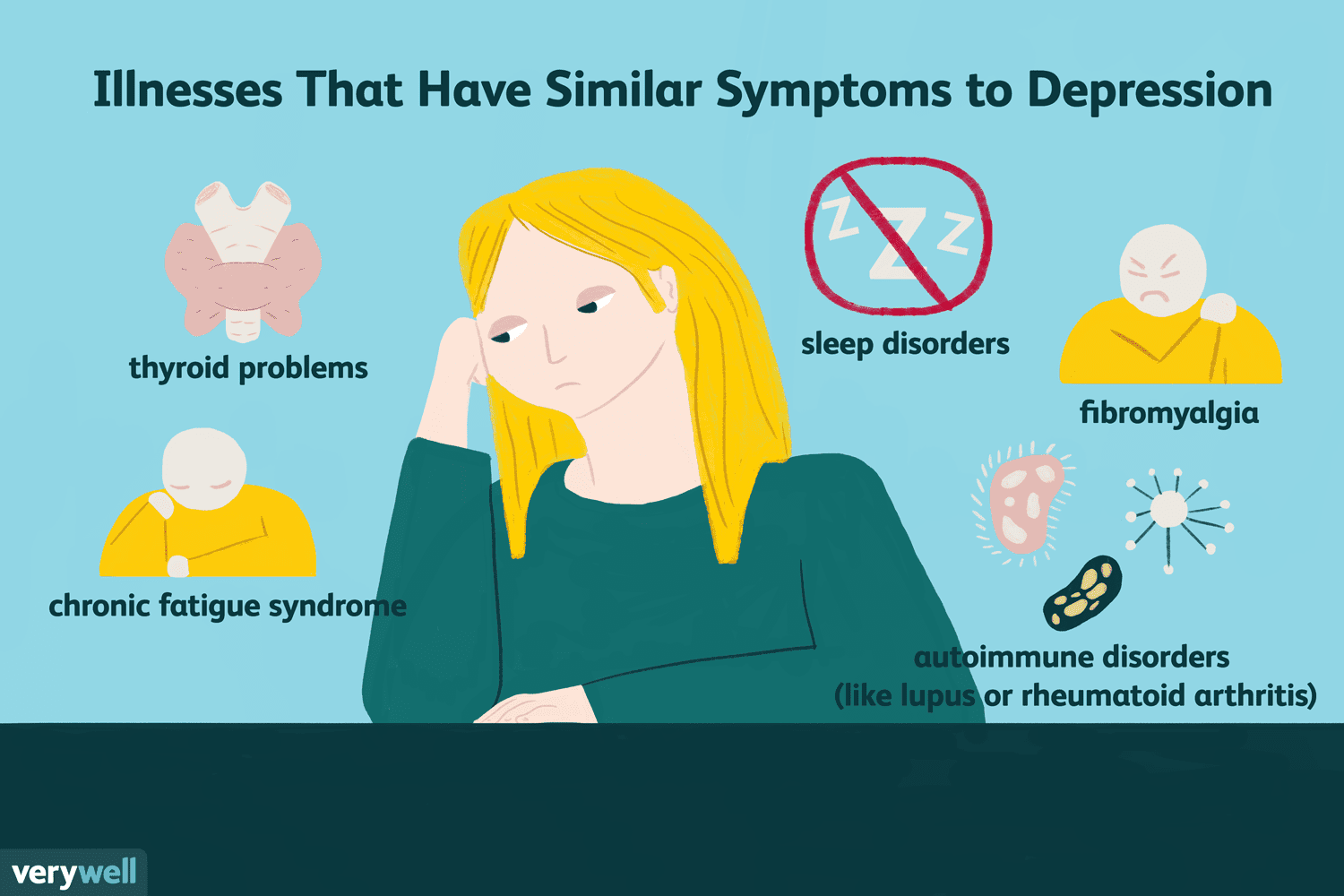Depression is a complex mood disorder that not only makes people feel sad or hopeless, but also triggers a range of physical discomforts. One of the most common symptoms is fatigue, a state experienced by over 90% of people with depression. In addition to exhaustion, depression can also bring about the following problems:
The good news is that there are ways by which you can effectively manage feelings of exhaustion and low energy states. But first, we need to understand the relationship between depression and exhaustion.
Why does depression make people feel tired?
There is no single answer to this question because there are multiple links between depression and exhaustion. Depression can directly contribute to feelings of exhaustion, while also indirectly affecting your sleeping, eating, and exercise habits, which can further deplete your energy.
Next, we’ll dive into the specific reasons why depression can lead to exhaustion.

1. Decreased sleep quality
Depression can negatively affect your sleep patterns. Surveys show that about 80% of people with depression experience insomnia. However, it’s not just lack of sleep that can lead to feelings of exhaustion; oversleeping is also a common symptom of depression. Either sleeping too much or too little can lead to a constant feeling of exhaustion.
Irregular sleep habits are one of the main reasons why people with depression feel tired. For example, some people may stay up until the wee hours of the morning and then sleep a long time during the day, and such a disorganized routine can prevent the body from getting quality rest.
2. Changes in eating habits
When you feel depressed, your appetite may change significantly. Some people may not want to eat at all, while others may develop strong cravings for foods high in sugar and fat. These unhealthy eating choices can leave you feeling lethargic and lacking in energy.
In contrast, a healthy diet rich in fruits, vegetables, and whole grains can provide your body with essential nutrients and antioxidants to help you regain your energy. However, people with depression often overlook the importance of these foods.
3. Changes in Exercise Habits
Exercise is a great way to boost your energy levels, but depression can make it difficult to stick to exercise. Due to a lack of motivation, many people with depression reduce or even stop exercising. This is not because they are lazy, but because the depression itself diminishes their ability to move.
It’s important to recognize this. Depression makes it difficult for you to get motivated to exercise, not because you’ve become “lazy”. Understanding this can help you cope better with your condition.
4. The vicious cycle of stress
The stress of depression can exacerbate feelings of exhaustion, which in turn exacerbate depressive symptoms, creating a vicious cycle. For example, the amygdala (the part of the brain responsible for dealing with anxiety and stress) is often more active in people with depression. This overactivity can lead to negative thought patterns, causing the patient to fall into a deeper depressive mood.
How do I treat depression?
The most important step in addressing feelings of exhaustion caused by depression is to receive professional treatment. Studies have shown that about 80-90% of people with depression experience relief of their symptoms when they receive professional treatment.
Here are the two main types of treatment:
1. Medication
Antidepressant medications are commonly used to treat depression. Your doctor will assess your medical history, family history, and mental health before prescribing medication. If antidepressants are right for you, they usually take about a month to take effect.
Although waiting for the medication to work may require patience, it does provide effective relief from depressive symptoms.
2. Talk therapy
Talk therapy, also known as psychotherapy, is a very effective form of treatment. Here are some common psychotherapies:
It is important to note that psychotherapy is not a cure-all. If a certain approach doesn’t work for you, don’t get discouraged and keep trying other approaches until you find the treatment program that works best for you.
How can I overcome depressive exhaustion?
While treating depression is a long-term process, there are steps you can take to provide immediate relief from exhaustion during treatment. Here are some suggestions:
1. Prioritize good sleep
Since depression can affect your sleep habits, it is crucial to develop good sleep habits. Here are some ways to improve your sleep:
2. Improve your diet
A healthy diet not only improves tiredness, but also boosts your overall mood. Eat more nutrient-rich foods such as fruits, vegetables, whole grains and high-quality proteins. In addition, eating smaller meals provides your body with more lasting energy than three large meals.
3. Stay in touch with family and friends
Depression often makes people feel alone, so it’s important to stay in touch with friends and family who care about you. Even a simple chat can bring you emotional support and relieve feelings of exhaustion.
4. Increase your exercise
While depression may make it difficult for you to exercise, it’s still beneficial to have a realistic and achievable exercise program. For example, taking a 30-minute walk every day will not only increase your energy, but also improve the quality of your sleep.
5. Take up new hobbies
Try some new hobbies, such as journaling, painting or playing a musical instrument. These activities can help you release negative emotions in a healthy way.
6. Gently increase activity
When you feel tired, you may be inclined to lie or sit still for long periods of time. However, this can make you feel worse instead. Instead, start with small, relaxing activities such as:
Summary
Fatigue caused by depression is a complex problem involving both psychological and physiological factors. Through professional treatment and self-regulation, you can gradually alleviate this feeling of exhaustion and regain vitality in your life. Remember, seeking help is not a sign of weakness, but an important step towards recovery.

